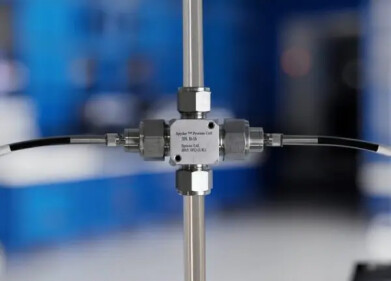Analytical Instrumentation
Are Oil Spills Worse in Cold Water?
Jun 29 2017
There’s no scenario where an oil spill isn’t an environmental disaster. But according to scientists at the University of Aberdeen, cold water can hinder the work of oil-eating bacteria that naturally occurs in the ocean. This means that in deep, icy cold water the environmental consequences of a major oil spill could be much worse than in milder drilling environments.
The findings come from one of Scotland’s leading universities, and question the performance of oil-degrading micro-organisms in cold water. Studying an area west of Shetland, the report found that degradation ability was significantly lower at sub-zero temperatures.
The impact of temperature on hydrocarbon degradation
According to the team, bacteria played a pivotal role in breaking down oil deposits in the Gulf of Mexico following the Deepwater Horizon disaster in 2010. Thanks to warm conditions, the bacteria was able work much faster. But in colder temperatures, Mother Nature’s clean-up efforts may not be as efficient.
The study was published in Scientific Reports, with researchers confirming that hydrocarbon degradation in sediments at 0ËšC is significantly slower than at 5ËšC.
Scientists call for “urgent” action
Prof Ursula Witte, senior author of the study explains, "Depleting oil reserves has forced the industry to explore progressively deeper waters, and the dramatic shrinking of Arctic sea ice means that previously inaccessible reserves are now considered for exploration.” As a result, she stresses that "Understanding the environmental implications of an oil spill in the cold and deep ocean is therefore urgent to improve our response to a potential spill.”
Even more alarming was the fact that certain hydrocarbons that were tested didn’t show any detectable levels of degradation at temperatures of 0ËšC. This suggests that the impact of oil contamination at near zero or sub-zero temperatures could have a much more severe impact on the marine environment.
A cool response from Oil and Gas UK
The oil industry was quick to comment, though isn’t about to shut up shop just yet.
Mick Borwell, HSE policy director of industry body Oil and Gas UK says that while the organisation does welcome data on hydrocarbon-degrading bacteria from the Faroe Shetland channel, the findings “represent the first stage in research of this kind and further studies will be required.”
He adds that "It is important not to draw conclusions from this work about the industry's oil spill response effectiveness."
In the event of a spill, technology plays a central role in testing. Now, scientists have combined Classical InfraRed (IR) spectroscopy and the CFC-free solvent cyclohexane to create a hydrocarbon measurement technique that’s both highly accurate, and environmentally safe. Find out more in ‘Ecological and economical measurement of oil-in-water without compromising accuracy.’
Digital Edition
PIN 25.5 Oct/Nov 2024
November 2024
Analytical Instrumentation - Picturing Viscosity – How Can a Viscometer or a Rheometer Benefit You? - Sustainable Grease Formulations: Evaluating Key Performance Parameters and Testing Method...
View all digital editions
Events
Dec 03 2024 Dusseldorf, Germany
Dec 08 2024 Anaheim, CA, USA
Turkey & Black Sea Oil and Gas
Dec 11 2024 Istanbul, Turkey
Dec 19 2024 Aurangabad, India
Jan 20 2025 San Diego, CA, USA



















